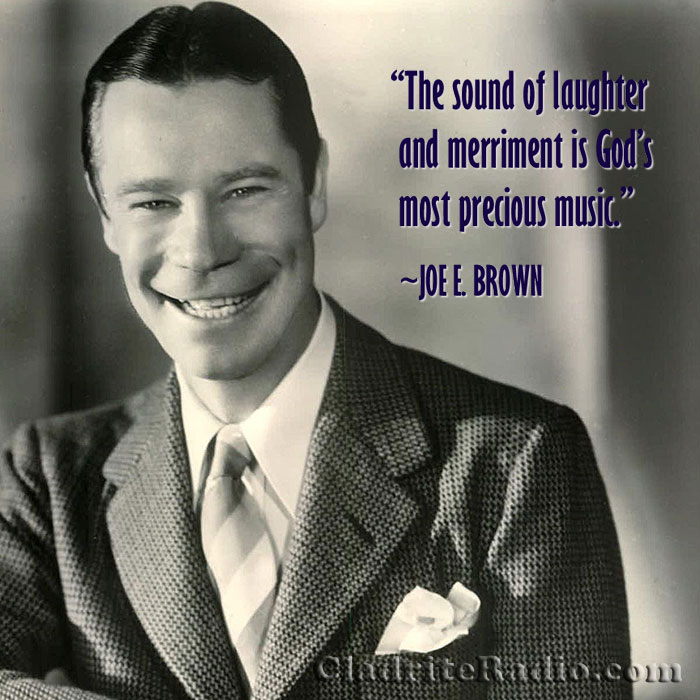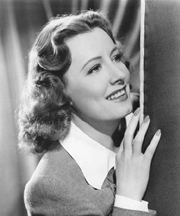Joe E. Brown was born Joseph Evans Brown 124 years ago today in Holgate, Ohio. He’s best remembered today for the role of millionaire Osgood Fielding III in Billy Wilder‘s Some Like It Hot (1959), but he starred in dozens of feature-length comedies in the 1930s and ’40s. Here are 10 JEB Did-You-Knows:
- At the age of 10, Brown, with the blessings of his parents, joined a traveling tumbling act, the Five Marvellous Ashtons, that played vaudeville and circuses.
- In 1920, Brown made his Broadway debut in a review called Jim Jam Jems. Throughout that decade, he continued to hone his comic chops and in 1929, he was hired to star in comedy features for Warner Brothers.
- Though he appeared small onscreen and generally played ineffectual nebbishes, he was actually quite athletic, having played semi-pro baseball for a time, and his physique, occasionally displayed in his pictures, was very impressively defined.
- During World War II, Brown let his movie career lag while he worked tirelessly to entertain the troops in Europe. He was one of just two civilians to be awarded the Bronze Star for his efforts.
- After the war, Brown and his wife adopted two German-Jewish refugee girls, naming them Mary Katherine Ann and Kathryn Francis.
- Brown’s first-born son, Don Evan, who was a Captain in the U.S. Army Air Corps, died during World War II in a plane crash. His second son, Joe L. Brown, grew up to be a baseball executive, serving as general manager of the Pittsburgh Pirates. During his tenure, the Bucs won the 1960 World Series, defeating the New York Yankees in a seven-game series.
- Beginning in 1924, Brown was a lifelong member of The Lambs, a NYC theatrical club that was found in 1874.
- In 1948, Brown won a special Tony award for his performance as Elwood P. Dowd in the touring company of Harvey. The award cited Brown for “spreading theater to the country while the original performs in New York.”
- Brown twice contributed first-person stories to Norman Vincent Peale‘s inspirational publication, Guideposts; the stories appeared in the June 1948 and June 1962 editions of the magazine.
- Joe and his wife, Kathryn were married nearly 58 years, until his death in 1973.
Happy birthday, Joe E. Brown, wherever you may be!


